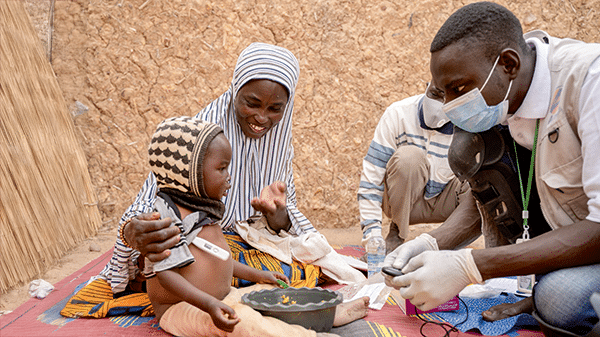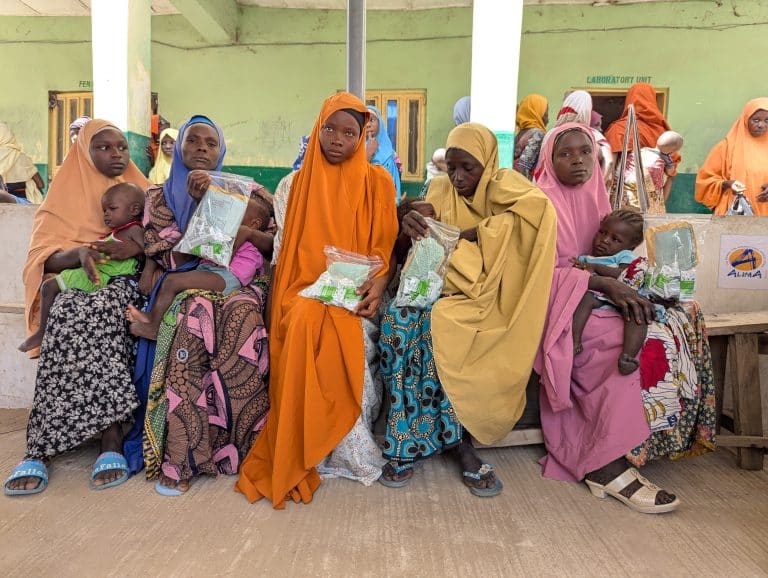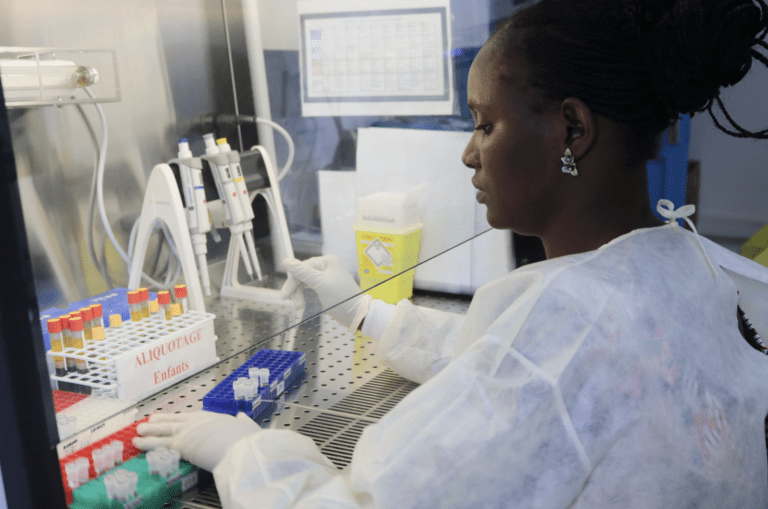Wakobo Ti Kodro project
In the Central African Republic, the Wakobo Ti Kodro project – which means “the matron of the village” in the Sango language – trains matrons to detect high-risk pregnancies using a user-friendly mobile application.
Context and challenges
Alarming figures
The Central African Republic faces one of the highest maternal mortality rates in the world. In 2024, the authorities declared maternal mortality a “national emergency”.
- 42% of births take place at home, often without medical assistance
- 882 maternal deaths per 100,000 live births (UNICEF)
- 28 neonatal deaths per 1,000 live births (second-highest rate in the world).
💡 Why this project matters
In remote rural areas, traditional birth attendants or “matrons” support pregnant women throughout their pregnancy and during childbirth. Their strong tie with the community is an essential lever for improving access to care and referring women at risk to health facilities.
ALIMA's action
An innovative community-based approach
The Wakobo Ti Kodro project focuses on collaboration between matrons and the formal health system. This integration builds community trust, improves care coordination, and helps save lives.
Project goals
- Providing matrons with training in basic obstetric and neonatal care
- Equipping them with a user-friendly mobile app to identify high-risk pregnancies
- Strengthening their ties with local health facilities
- Increasing the number of monitored pregnancies and assisted births
- Reducing maternal deaths at home.
In addition, the project pursues four complementary goals:
- Improving the detection of obstetric emergencies
- Reducing delays in the management of complications
- Bridging traditional knowledge with modern medicine
- Assessing the overall impact of this innovative approach.
Expected results (available soon)
Initial results from the Wakobo Ti Kodro project will be shared soon. They will provide a better understanding of its impact on maternal health.
Quantitative indicators:
- Monitoring of pregnant women at each stage: prenatal consultations, deliveries, postpartum
- Rate of assisted births among high-risk pregnancies
- Number of referrals to hospital facilities
- Improvement of matrons’ knowledge after 10 months
Qualitative indicators:
- Perception and acceptance of the mobile app by both matrons and healthcare professionals
- Quality of collaboration between matrons and the health system.
🔬 Find out more
📄 Discover the research poster developed by ALIMA and its partners, presenting the preliminary findings of the Wakobo Ti Kodro project.
Partners and project funding
The Wakobo Ti Kodro project is implemented in the Central African Republic by ALIMA, in partnership with:
- The Ministry of Health of the Central African Republic
- The GHiGS (Global Health in the Global South) research team, affiliated with Inserm/IRD, Bordeaux, France
- The PAC-CI research center in Abidjan, Côte d’Ivoire
This project is funded by:
🎥 Discover the Wakobo Ti Kodro project in this video report.
FAQ
Matrons are often the first people pregnant women turn to, especially in rural areas. By training and empowering them, the project strengthens the chain of care from the first link.
It allows matrons to:
- Detect signs of complications
- Raise awareness among women about the importance of medical monitoring and giving birth in health facilities
- Contact a health professional
- Refer patients to health centers
It embodies ALIMA’s research-operation approach: starting from the needs of the field to co-construct concrete solutions with communities.
Our reports and publications on the Wakobo Ti Kodro project
ALIMA develops committed scientific research, as close as possible to the realities on the ground.
(Data coming soon)
On the ground
Related news

OptiMA Trials: When Clinical Research Adapts to Field Realities
In the Democratic Republic of the Congo and Niger, the OptiMA clinical trials successfully combined scientific rigor with operational constraints in complex humanitarian settings. An

NutriVax: Integrating Nutrition and Vaccination to Save Children’s Lives in Nigeria
Every year, millions of children in Africa are trapped in a vicious cycle of malnutrition and infectious diseases. But what if we could fight both

Breakthrough in Ebola Vaccination: Five-Year Immunity Achieved After Injection
A decisive new step has been taken in the fight against the Ebola virus. According to a PREVAC study conducted in Guinea, the immunity conferred


